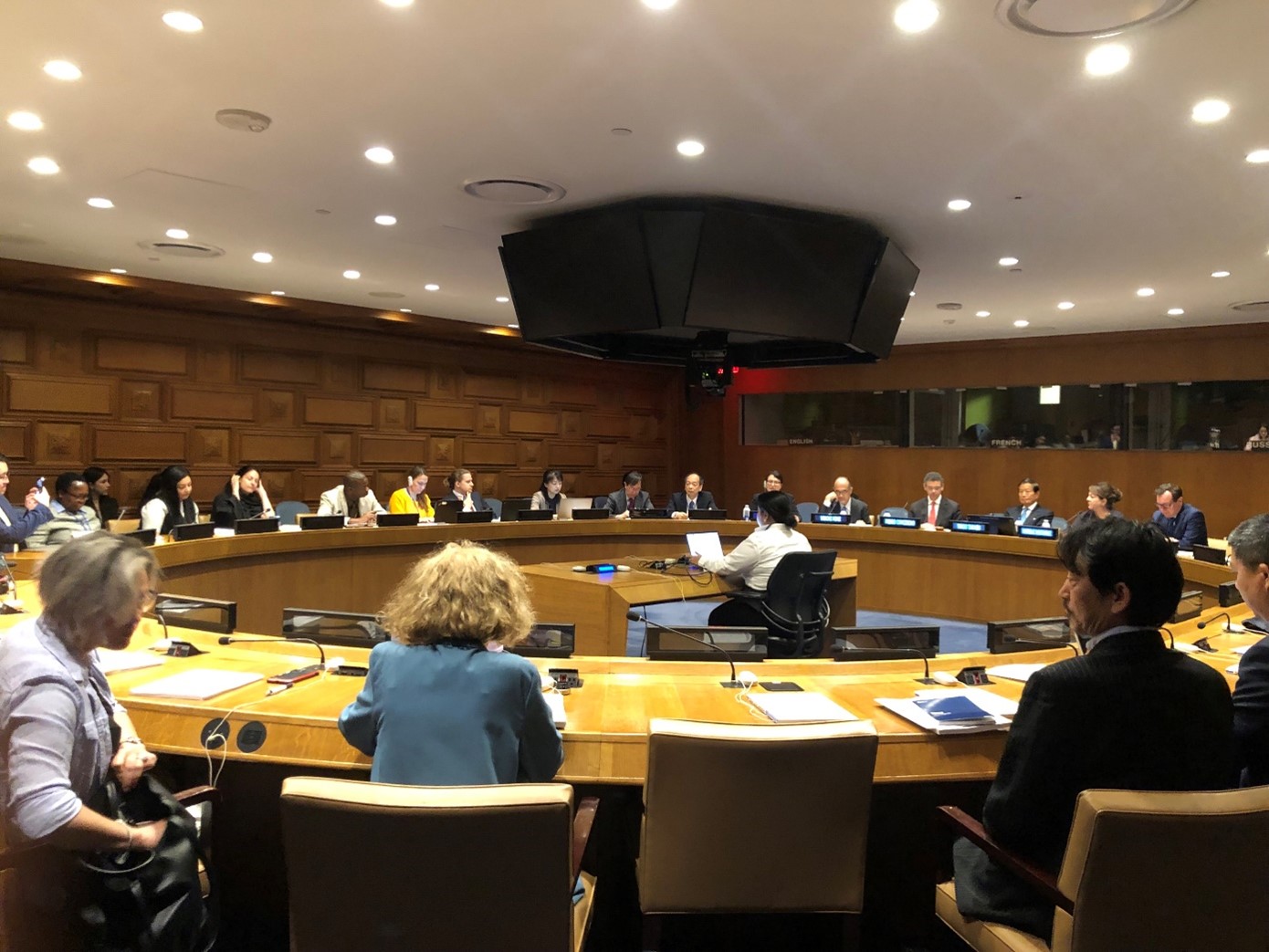Symposium on “SDGs and Local Communities: How to Create Human Security Indicators in Your Town!” at the United Nations Headquarters
2024.08.13
In February 2024, the JICA Ogata Sadako Research Institute for Peace and Development (JICA Ogata Research Institute) published “SDGs and Local Communities: How to create Human Security Indicators in Your Town!“ This is the English version of a book that proposes subnational indicators of SDG performance. A symposium on this book was held on May 8, 2024, at the United Nations Headquarters in New York, United States.
The symposium was jointly organized by the United Nations Human Security Unit (UN-HSU), the Human Development Report Office (HDRO) of the United Nations Development Programme (UNDP), and the JICA Ogata Research Institute. Its purpose was to promote a better understanding among UN member states of subnational efforts to achieve the Sustainable Development Goals (SDGs). JICA Ogata Research Institute was represented by Mine Yoichi, executive director.

Active discussion on human security taking place during the symposium
The symposium opened with remarks from Pedro Conceição, director of HDRO. This was followed by remarks from Takasu Yukio, special adviser on Human Security to the UN Secretary-General. Based on the book, Takasu explained that human security is not an abstract concept but rather a concrete set of actions. He added that it is not certain whether we will be able to achieve the SDGs, and that in order to make progress, it is important to formulate policies that go beyond conventional ways, understand how far the objectives of human security have been achieved at the subnational level, and address the priorities of local communities.
Next, Seraphine Wakana, resident coordinator of the UN in Sierra Leone, gave a presentation online. She presented a project by the United Nations Population Fund (UNFPA) as an example of SDG localization. Heriberto Tapia of HDRO then added that in the Anthropocene, climate change is exacerbating inequalities between countries and increasingly dividing the world. He emphasized that the world must unite to work on this situation and human security is a means to address pressing issues in the global community and at the regional level.
Drawing on the lessons learned from the experience of the United Nations Trust Fund for Human Security (UNTFHS), Mehrnaz Mostafavi, chief of UN-HSU, emphasized the importance of comprehensive analyses, multidimensional partnerships, trust, unity and empowerment.
Finally, Mine reported on the objectives and achievements of research activities on human security at the JICA Ogata Research Institute. By sharing some cases in Japan from the new book, he stressed the importance of bottom-up approaches, a focus on human dignity, and the development of human security indicators.
Around 40 participants, including those from permanent missions of Member States to the UN, were in the audience during the Q&A session. They asked various questions and lively discussion on human security followed. This was a great opportunity to discuss critical issues in the global arena. That is, how approaches based on the concept of human security need to be applied to achieve the SDGs, and based on this, the importance of understanding human security indicators in terms of the degree of goal achievement at the subnational level and their compatibility with the priorities of local communities.
A recording of the symposium and presentation materials are available at the following link.

事業事前評価表(地球規模課題対応国際科学技術協力(SATREPS)).国際協力機構 地球環境部 . 防災第一チーム. 1.案件名.国 名: フィリピン共和国.

事業事前評価表(地球規模課題対応国際科学技術協力(SATREPS)).国際協力機構 地球環境部 . 防災第一チーム. 1.案件名.国 名: フィリピン共和国.

事業事前評価表(地球規模課題対応国際科学技術協力(SATREPS)).国際協力機構 地球環境部 . 防災第一チーム. 1.案件名.国 名: フィリピン共和国.

事業事前評価表(地球規模課題対応国際科学技術協力(SATREPS)).国際協力機構 地球環境部 . 防災第一チーム. 1.案件名.国 名: フィリピン共和国.

事業事前評価表(地球規模課題対応国際科学技術協力(SATREPS)).国際協力機構 地球環境部 . 防災第一チーム. 1.案件名.国 名: フィリピン共和国.
scroll